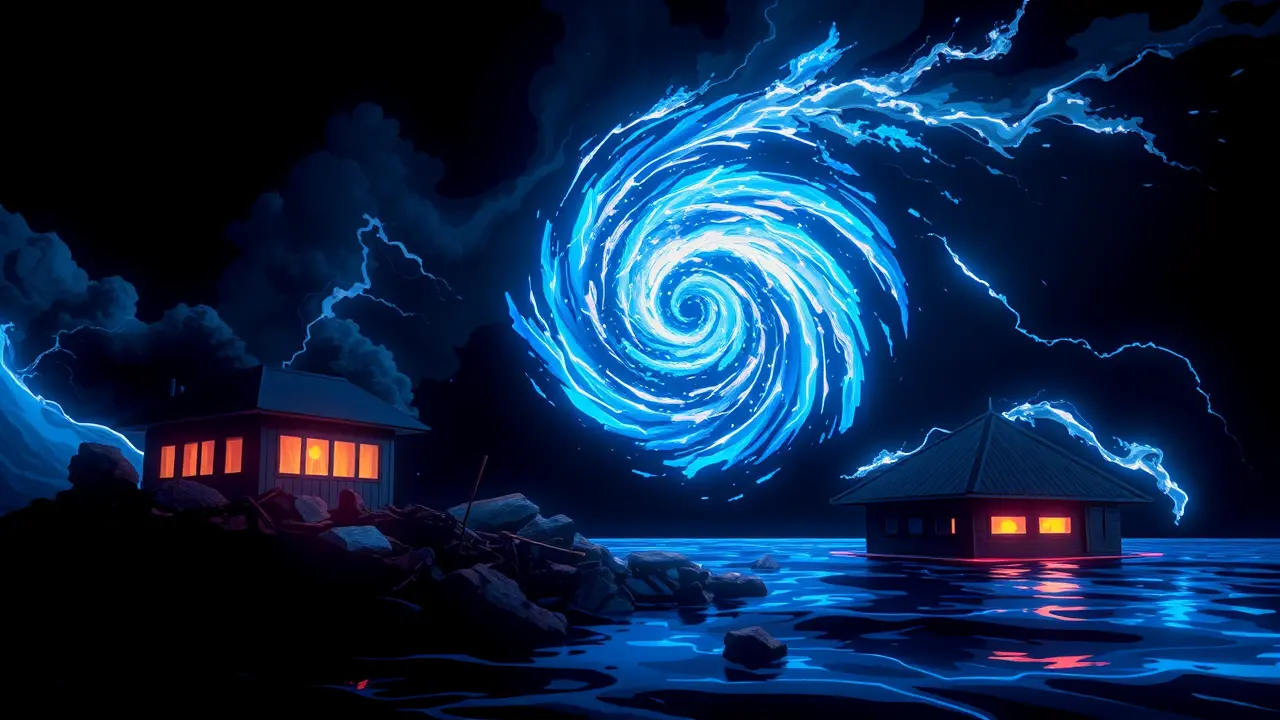
Scienceclimate scienceExtreme Weather Studies
Hurricane Melissa Causes Widespread Destruction in the Caribbean.
RA
Rachel Adams
3 days ago7 min read
Hurricane Melissa didn't just arrive in the Caribbean; it was a crescendo of climatic fury that scientists had long warned was brewing in our warming oceans, a direct consequence of the atmospheric changes we've set in motion. As a biologist who has spent years documenting the intricate dance between climate and ecology, watching this storm unfold felt like witnessing a grim prophecy fulfilled, the data points I've studied in sterile reports manifesting as shattered communities and displaced wildlife.The storm's rapid intensification from a tropical disturbance to a Category 5 behemoth over abnormally warm seas is a textbook case of climate change's handiwork, where each fraction of a degree in ocean temperature acts as pure rocket fuel for these systems, supercharging their winds and expanding their rain fields far beyond historical norms. We've seen this pattern before in the ghosts of hurricanes Maria and Dorian, but Melissa represents a terrifying new benchmark, its path of destruction across islands like Dominica and St.Lucia not merely a weather event but an ecological and human catastrophe that will take generations to heal. The coral reefs that normally act as natural breakwaters have been bleached and weakened by previous marine heatwaves, leaving coastlines utterly exposed, while the torrential rains triggered catastrophic landslides in deforested hillsides, a stark reminder of how human land-use decisions compound natural disasters.Speaking with local conservationists, the despair is palpable—the same mangrove forests they've been painstakingly replanting to buffer against storm surges were simply scoured from the coastline, and the endemic bird species whose habitats they've protected now face an existential threat from the loss of canopy cover and food sources. This isn't just property damage; it's the unravelling of entire ecosystems that have evolved over millennia, and the consequences will ripple through fisheries, agriculture, and tourism—the very lifeblood of these nations—for years to come.The international response, while crucial, often feels like applying bandages to a hemorrhaging wound when what's truly needed is a global commitment to address the root cause, to drastically cut the carbon emissions that are fundamentally altering the thermodynamics of our atmosphere and oceans. The images of splintered homes and flooded streets are visceral and immediate, but the quieter, longer-term tragedy is the salinization of freshwater aquifers, the loss of arable land, and the displacement of communities that have called these islands home for centuries—a slow-burning crisis that doesn't make the headlines once the winds die down. Hurricane Melissa is a sobering, heartbreaking data point in the ongoing experiment we are conducting with our planet, a brutal lesson in interconnectedness where emissions from industrialized nations translate directly into existential threats for small island states thousands of miles away, and until we treat the climate crisis with the urgency it demands, we are merely counting down to the next Melissa.
#hurricane
#caribbean
#climate change
#storm intensity
#cleanup
#featured
Stay Informed. Act Smarter.
Get weekly highlights, major headlines, and expert insights — then put your knowledge to work in our live prediction markets.
© 2025 Outpoll Service LTD. All rights reserved.